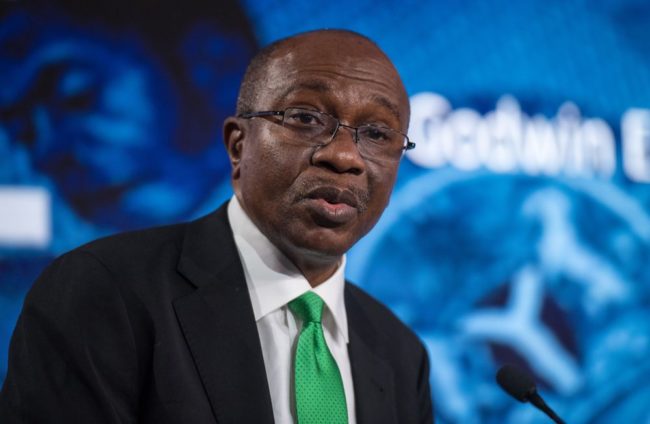The Central Bank of Nigeria (CBN) Governor, Godwin Emefiele, has informed that Nigeria being a developing economy, the approach to monetary policy must incorporate context, by innovating around the use of available instruments.
Also, he pledged to bequeath a Central Bank that focuses on building a resilient financial system that can serve the growth and development needs of the country.
The CBN Governor stated this in Akure in a keynote address delivered at the 32nd Seminar for Finance Correspondents & Business Editors with the theme: Exchange Rate Management and Economic Diversification in Nigeria: The PAVE (Produce, Add Value and Export) Option.
Emefiele who was represented virtually by Edward Adamu, Deputy Governor, Corporate Services of the CBN said: “Being a developing economy, our approach to monetary policy must incorporate context. We do this by innovating around the use of available instruments.
ALSO READ FROM NIGERIAN TRIBUNE
- Bandits Storm Kaduna Airport, Stop Aircraft From Taking Off
- Lagos Socialite Who Distributed Petrol As Souvenir Sentenced To Two Years Imprisonment, Gets Fine Option
“We understand that monetary policy must coordinate well with fiscal policy towards addressing the numerous developmental challenges our nation faces. Fortunately, the enabling statute envisages this and empowers us to intervene where and when necessary.
“Under my watch, the Bank has done this through various development finance initiatives. And with the benefit of hindsight now, we can safely say that the outcomes have so far justified our approach.
“My mission was and still is, to bequeath a Central Bank that focuses on building a resilient financial system that can serve the growth and development needs of our beloved country, Nigeria”.
Mr Emefiele went on memory lane to recall how the price of crude oil had substantially softened by June 2014 when he assumed office, explaining that “Geopolitical tensions were widespread and discussions around policy normalisation, post-global Economic and Financial Crisis (GEFC), filled the air, causing acute capital flow reversals, especially in emerging markets like Nigeria.”
According to him, Nigeria’s external reserves had fallen from a peak of US$62bn in 2008 to US$37bn, and due to the sharp drop in crude oil prices, the nation experienced a sharp drop in monthly foreign earnings from about US$3.2 billion to less than US$1.0billion.
These adverse conditions, he pointed out, eventually plunged the economy into a recession for the first time in about a quarter of a century.
The apex bank boss noted that the tough period called for bold and innovative decisions to be taken and “we did not shy away from doing what we considered to be in the best interest of our beloved country.”
Mr Emefiele said the CBN was to act as a financial catalyst by targeting strategic sectors that could create jobs on a mass scale and reduce the country’s import bills, adding that to solve the immediate and long-term economic challenges of the country, the CBN needed to create an enabling environment with appropriate incentives to empower innovative entrepreneurs to drive growth and development.






